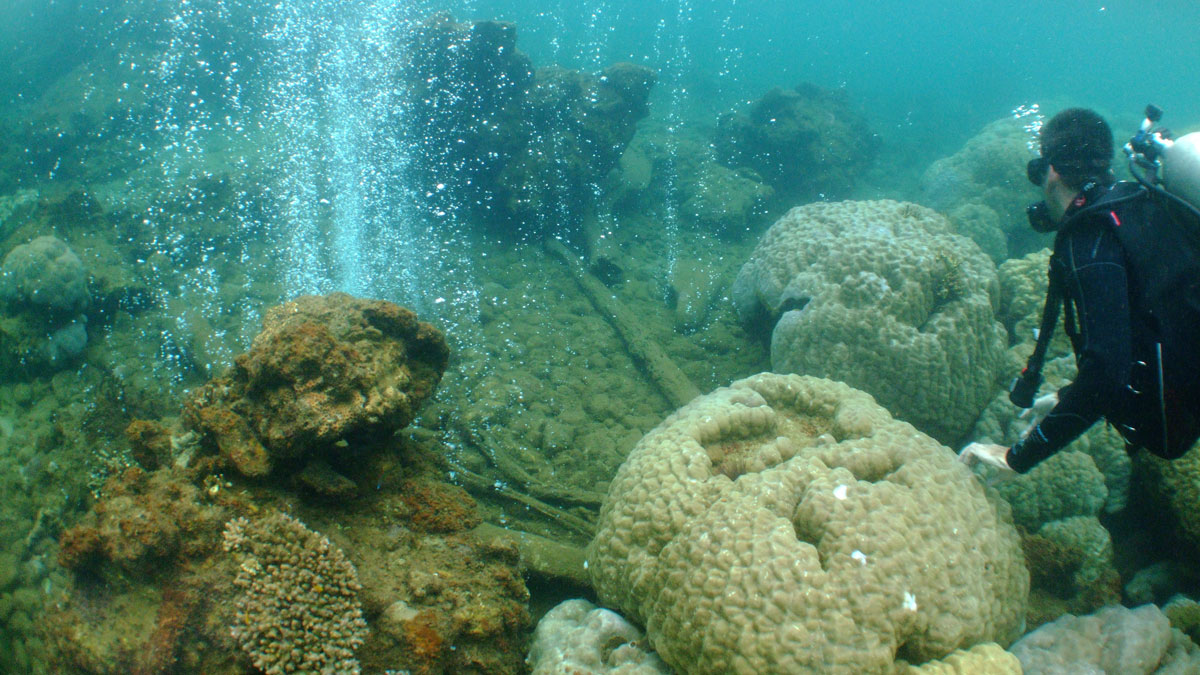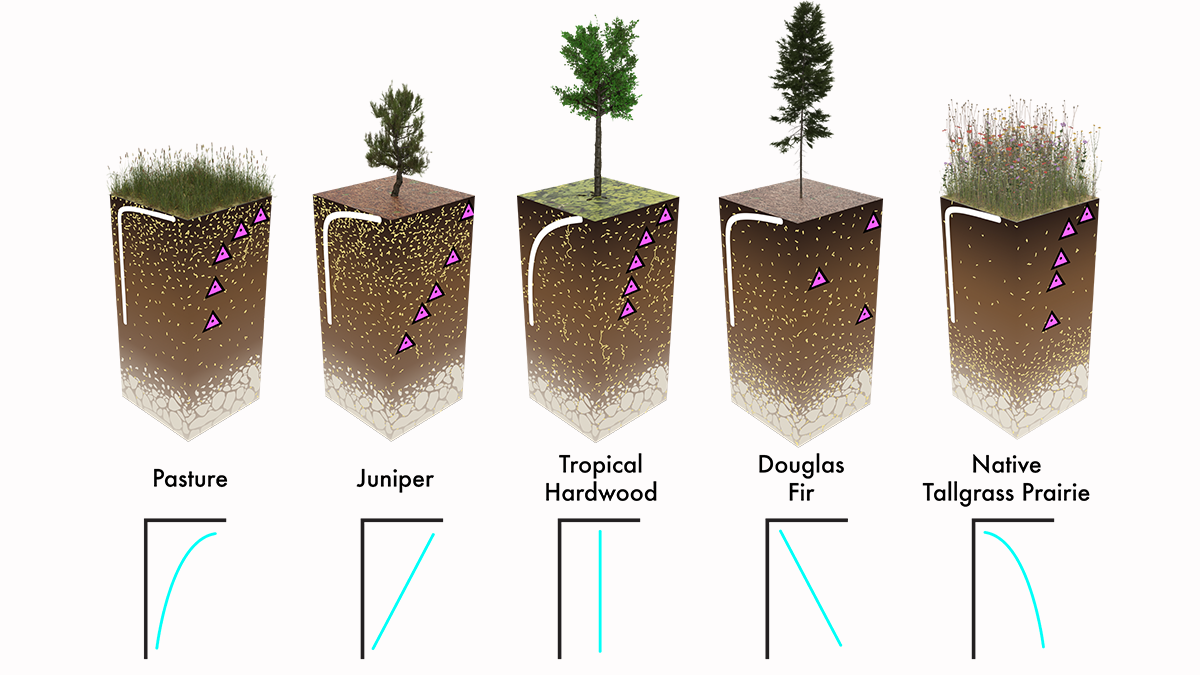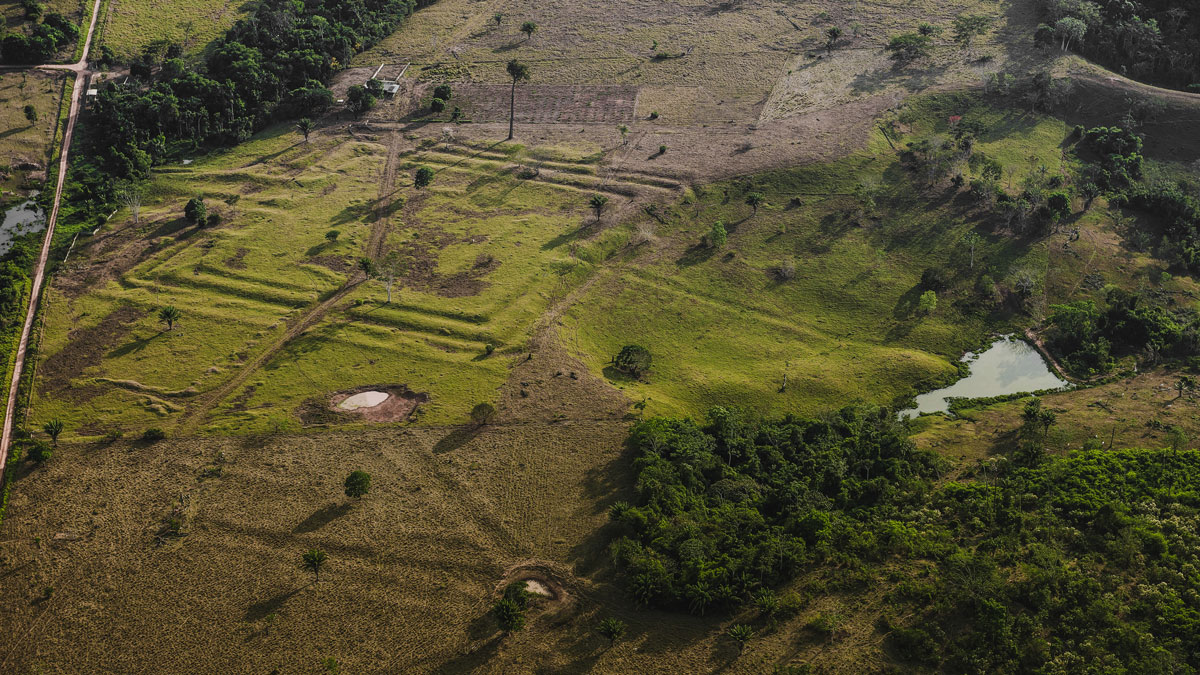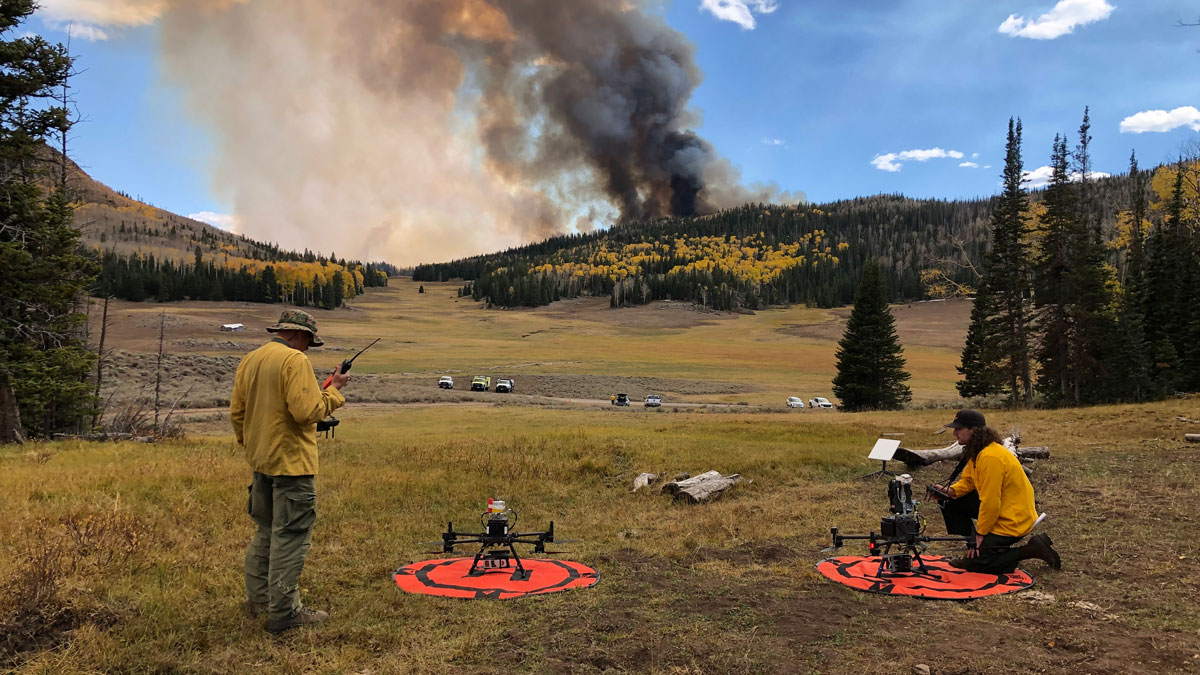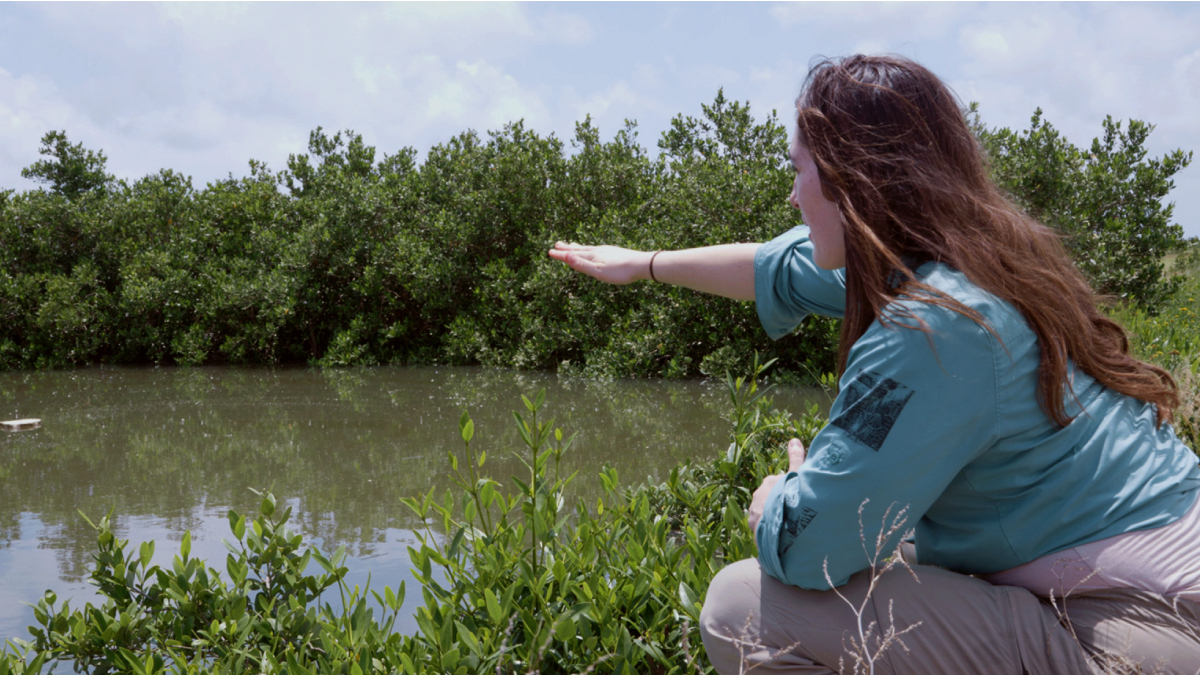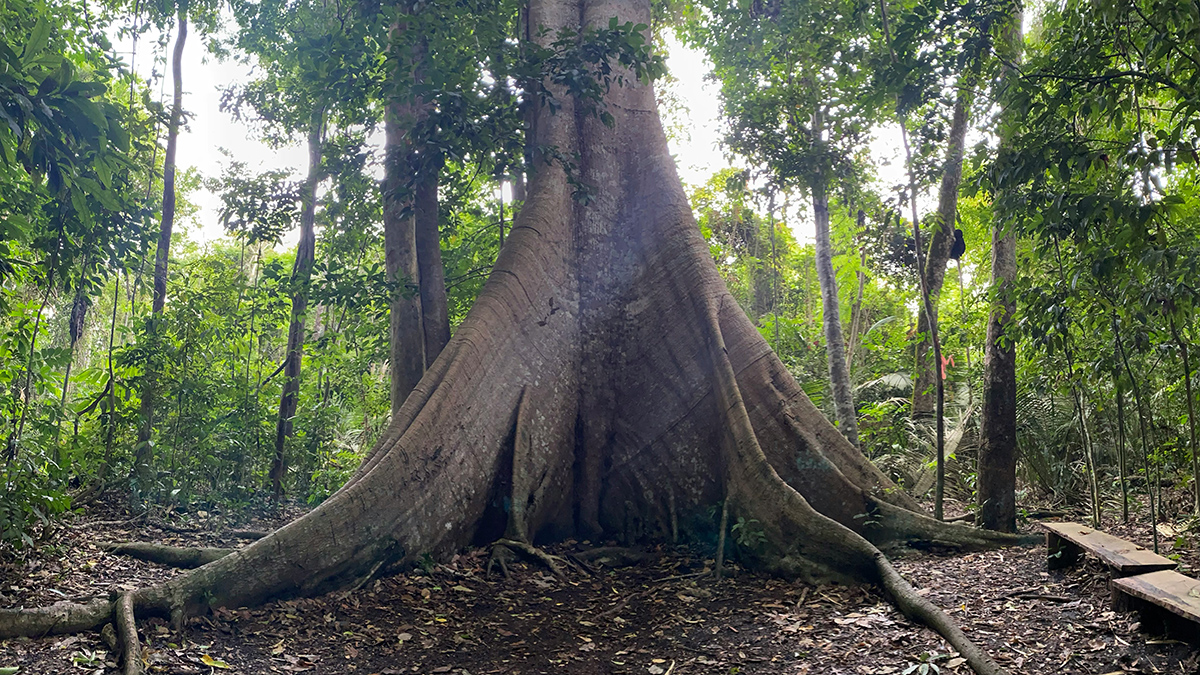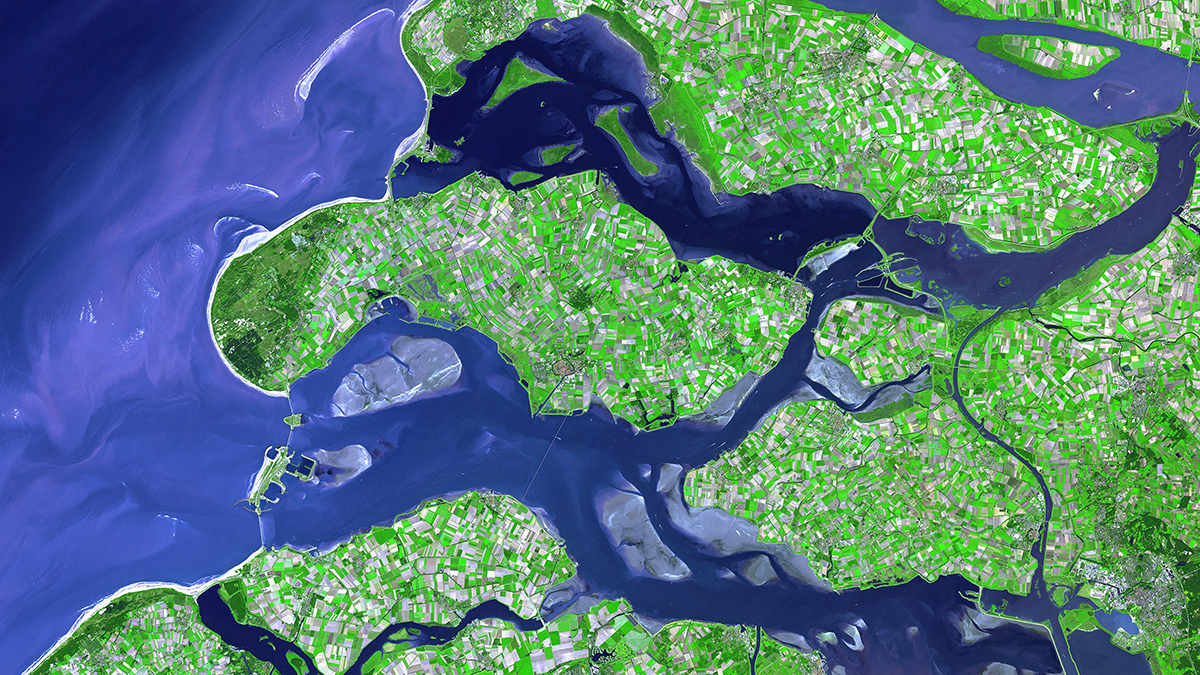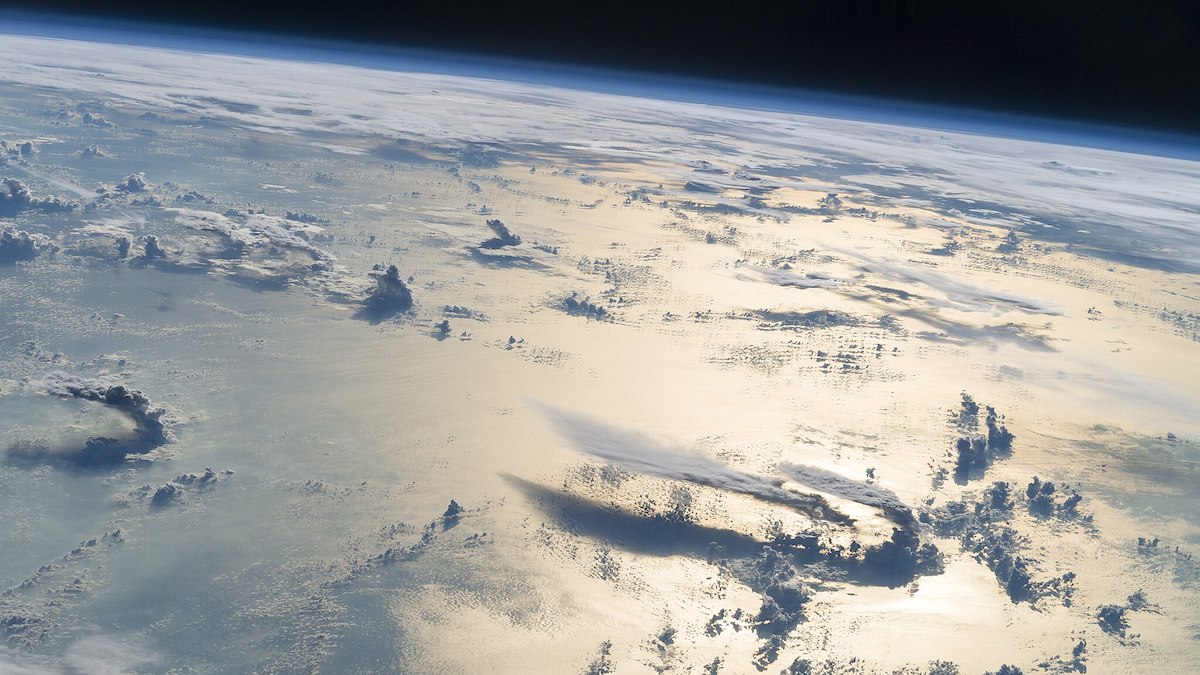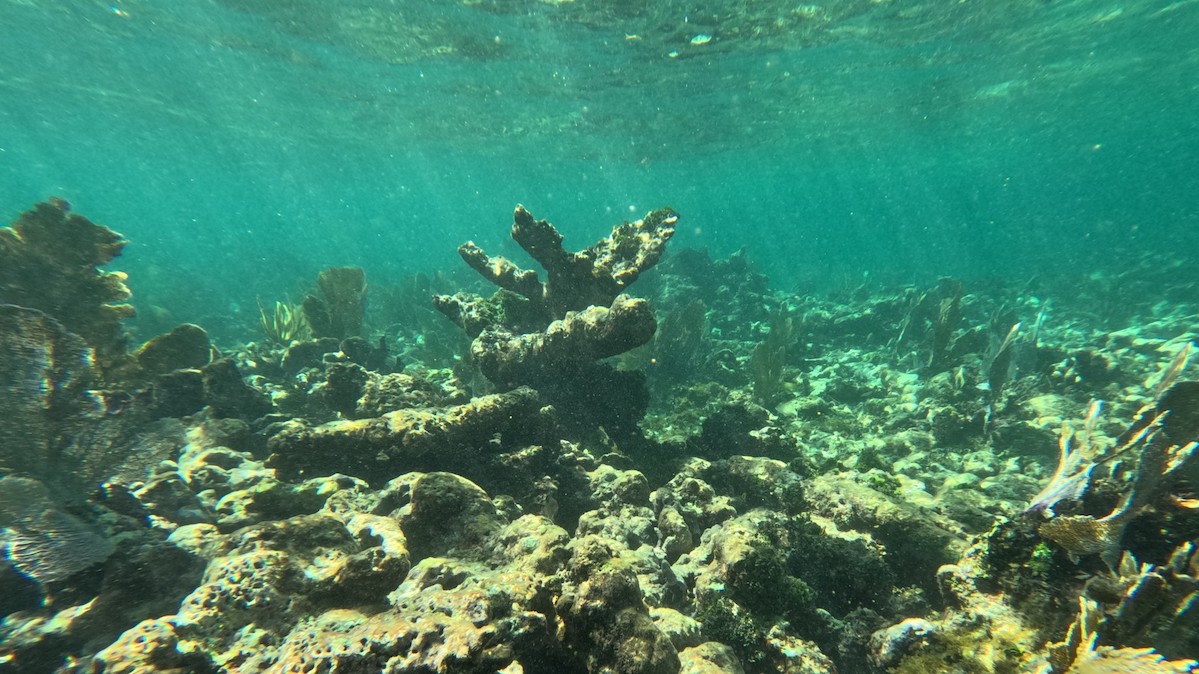As seawater becomes steadily more acidic, complex branching corals die off and are replaced with hard boulder corals and algae.
ecology
Rethinking How to Measure Roots
Researchers present a new method for determining depth-dependent patterns of the root-soil interactions that drive ecosystem functions in the critical zone.
Climate Change Could Drive Butterflies and Plants Apart
Insects and the plants they depend on are migrating in response to climate change, but not always in the same way.
How Ancient Indigenous Societies Made Today’s Amazon More Resilient
Portions of the forest managed by pre-Columbian populations hold higher biomass and are more able to withstand climate change.
Fungal Spores in Wildfire Smoke Could Cause Lung Disease
Mice exposed to fungi spready by wildfires developed symptoms, exposing a potential health hazard to humans that has been understudied.
Glass Sand Grows Healthy Mangroves
In places with lots of glass waste, sand made from recycled material could be another tool in the coastal restoration toolbox.
As CO2 Levels Rise, Old Amazon Trees Are Getting Bigger
New data show resilience among the rainforest’s giants, though scientists warn that nutrient limits and rising heat could end the trend.
The Role of a Ditch in the Matrix
These constructed waterways are often a “no-man’s-land” between terrestrial scientists and limnologists. But ditches’ role in transport, agriculture, biodiversity, greenhouse gas emissions, and even archaeology means it’s time to take a closer look.
Earth System Engineers Take Planetary Alterations to Extreme Scales
A new framework argues Earth scientists should employ the concept of ecosystem engineering across geologic time and space.
As Seas Rise, Corals Can’t Keep Up
Coral reef growth rates in the tropical western Atlantic have slowed to a fraction of what they once were, erasing coastal protection benefits they once offered.

